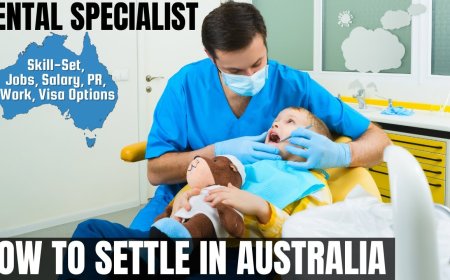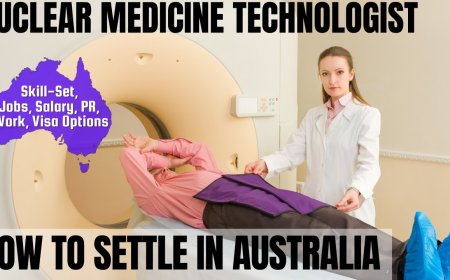Thoracic Medicine Specialist Career and Immigration options for Australia
Thoracic Medicine Specialist Investigates, diagnoses and treats diseases and disorders of the human respiratory system. Registration or licensing is required.
Profile Title: Thoracic Medicine Specialist Career and Immigration options for Australia
Alternative Title:Respiratory Medicine Physician, Thoracic Medicine Physician
ANZSCO Code: 253324 | Unit Code: 2533
Skill Level: Level 1 | Work Experience: 5 Years
Assessing Bodies: (Medical Board of Australia)
Skill Occupation List (SOL): MLTSSL
Specialization: Pulmonary Specialist, Respiratory Physician
Profile Description: Investigates, diagnoses and treats diseases and disorders of the human respiratory system. Registration or licensing is required.
Job Duties:
- examining patients to determine the nature and extent of problems after referral from General Medical Practitioners and other medical specialists, and undertaking laboratory tests and diagnostic procedures
- analysing test results and other medical information to make diagnoses
- prescribing and administering drugs, and remedial and therapeutic treatment and procedures
- recording medical information and data
- reporting specified contagious and notifiable diseases to government health and immigration authorities
- may admit or refer patients to hospitals
- may consult other medical specialists
Skill Level Description: In Australia and New Zealand: Occupations in this unit group have a level of skill commensurate with a Bachelor Degree or higher qualification, two years hospital-based training, and at least five years specialist study and training (ANZSCO Skill Level 1). Registration or licensing is required.
Available Visa Options (As on February 2024):
- 186 - Employer Nomination Scheme visa (subclass 186)
- 189 - Skilled Independent (subclass 189) - Points-Tested
- 190 - Skilled Nominated (subclass 190)
- 407 - Training visa (subclass 407)
- 485 - Temporary Graduate (subclass 485) - Graduate Work
- 489 - Skilled Regional (Provisional) visa (subclass 489) - Family sponsored
- 489 - Skilled Regional (Provisional) visa (subclass 489) - State or Territory nominated
- 482 - Temporary Skill Shortage (subclass 482) – Medium Term Stream
- 187 - Regional Sponsor Migration Scheme (subclass 187)
- 494 - Skilled Employer Sponsored Regional (provisional) (subclass 494) - Employer sponsored stream
- 491 - Skilled Work Regional (provisional) visa (subclass 491) State or Territory nominated
- 491 - Skilled Work Regional (provisional) visa (subclass 491) Family Sponsored
Registration or Licensing: required
Industries: Internal Medicine Specialists are nearly all employed in Health Care and Social Assistance
Education Profile: The most common level of educational attainment for Internal Medicine Specialists is Post Graduate/ Graduate Diploma or Graduate Certificate (100 per cent).
Job Opening: Over the five years to November 2019, the number of job openings for Internal Medicine Specialists is expected to be low (equal to or less than 5,000). Job openings count both employment growth and turnover (defined as workers leaving their occupation for other employment or leaving the workforce).
Age Group: The main age group is 35-44 years (28.2 per cent) and the median age is 49 years (compared to 40 years for all occupations).
Gender: The female share of Internal Medicine Specialists is 33.3 per cent and 79.5 per cent of Internal Medicine Specialists work full time. Average weekly hours for full time workers are 49.4 (compared to 40.2 for all occupations).
Earning: There are no earnings data available for this occupation.
Employment: Employment for this occupation rose moderately in the past five years and in the long-term (ten years). Looking forward, employment for Internal Medicine Specialists to November 2020 is expected to grow strongly.
What's Your Reaction?
 Like
0
Like
0
 Dislike
0
Dislike
0
 Love
0
Love
0
 Funny
0
Funny
0
 Angry
0
Angry
0
 Sad
0
Sad
0
 Wow
0
Wow
0









































































































